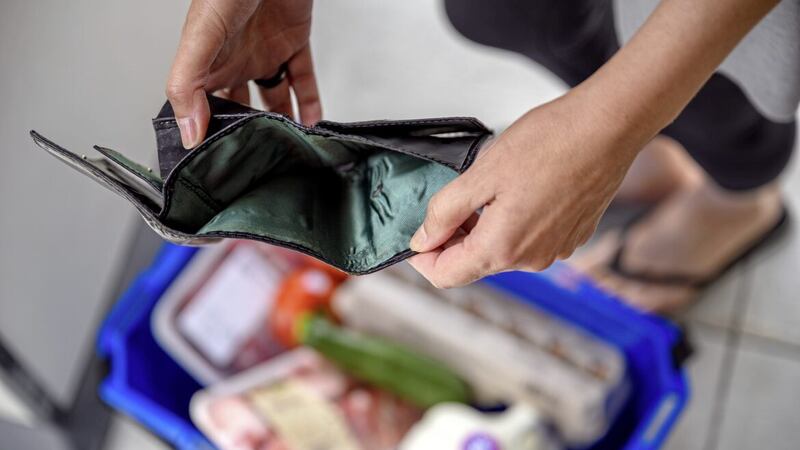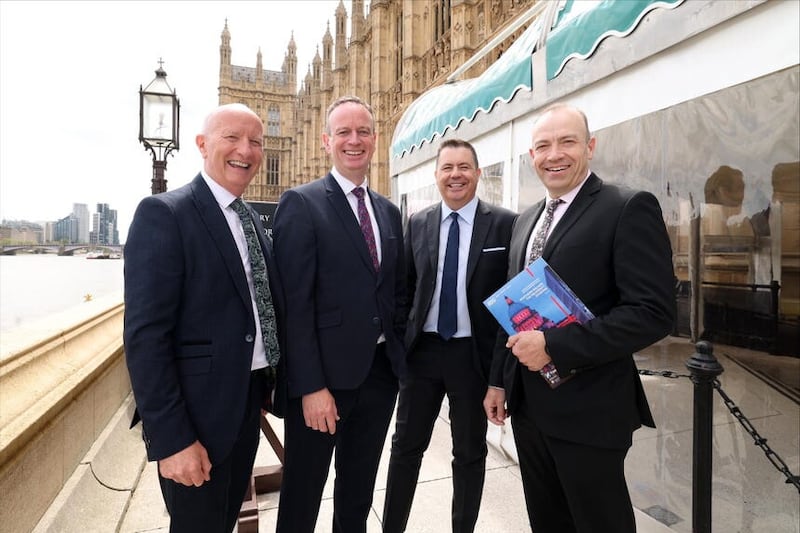WE are no longer just experiencing a cost-of-living crisis, it is also a cost of doing business crisis which threatens jobs and businesses across every sector of our economy. Businesses are facing a perfect storm of cost increases including energy, national insurance, inflation, Covid recovery as well as falling consumer confidence.
With many consumers paying more for energy, mortgages and loan repayments they are left with even less disposable income. This is having a clear impact on spending with local retailers which underlines the need to help struggling households in the current cost of living crisis.
While it is no silver bullet, it is disgraceful not to have a functioning Executive in place during this escalating crisis. Make no mistake this is about saving jobs and businesses over the next months. We need immediate action and leadership from our political parties.
The six-month cap on energy costs for businesses announced last week is a positive first step in providing support for our members and it is welcome that the Prime Minister has given a commitment that this will equally apply to Northern Ireland.
However, Government needs to go much further to provide additional support to small businesses struggling with this energy crisis. This should include business rates relief, VAT reductions and the reversal of the national insurance hike.
Retail NI and 14 other trade groups and Chambers of Commerce has published an 18-point plan for the UK Government and NI Executive to address the cost of doing business crisis.
Government must also recognise that the cost of doing business crisis is placing jobs and businesses at risk as well as adding to the high inflation rate.
It is vital that government help protect the jobs and businesses that make up the economic infrastructure of the Northern Ireland economy and recognise the important role they play in supporting working families during this crisis and its vital role in the recovery process.
Together the 15 groups supporting this plan represent tens of thousands of businesses in Northern Ireland's economy. They contribute billions of pounds to the local economy and sustain hundreds of thousands of jobs across every local village, town and city.
Our joint proposals include:
• An immediate reversal of the national insurance hike. This was without doubt a poorly timed decision and was the wrong tax increase at the wrong time.
• A UK wide reform of the business rates system to ensure on-line and out of town businesses are paying the same rate as high street businesses. Reducing the high street burden and passing on the on-line tax income to the devolved nations to support a rates reduction.
• Restoration of the business rates holiday which concluded in July. This holiday should run until April 2023 to direct assist those traders struggling the most.
• A fundamental redesign of the business rates system, based on fairness and affordability.
• Immediate reform of the Rates Hardship Fund to direct assist businesses who are struggling with excessive costs.
• The Executive to establish a Rural Town and Village Infrastructure Investment Fund to ensure our small and mid-sized towns and villages are supported during this economic crisis.
• Capital grants to assist hospitality and retail businesses instal sources of renewable energy, supporting the target of net zero carbon and reducing the cost of energy for the business.
Neither the retail or hospitality sectors have recovered from the economic devastation of the pandemic, and they are now faced with an even more challenging fiscal crisis, with consumer confidence falling, driven by high inflation and the largest ever drop in household disposal income (down 32.3 per cent to £93.50/week versus UK average £204/week).
All levels of Government should now be mobilised to support firms and families as seek to navigate through this perfect storm of economic challenges. If we can adopt the same collective focus that we brought to combating the pandemic, we will get through it and bounce back.
:: Glyn Roberts is chief executive of Retail NI








